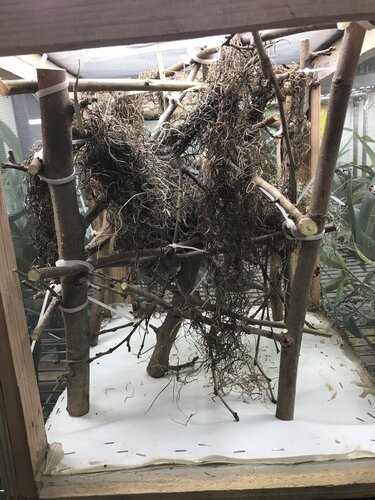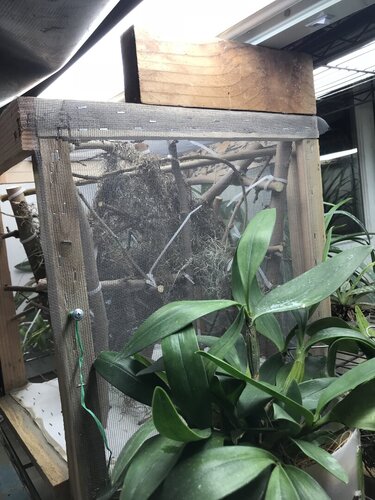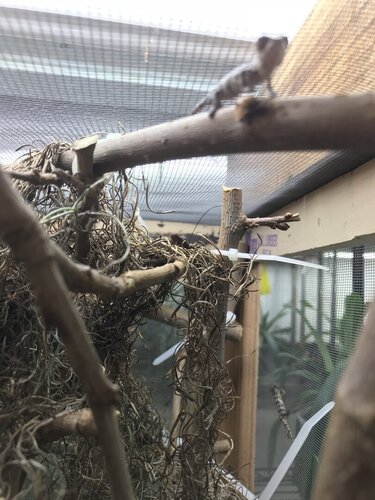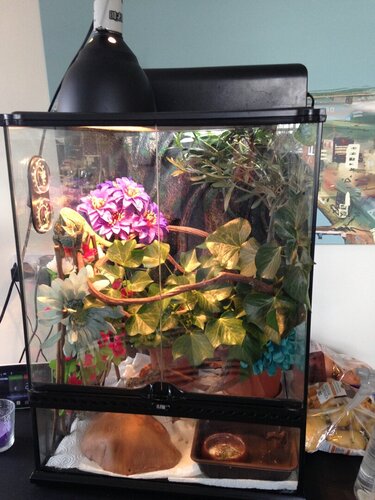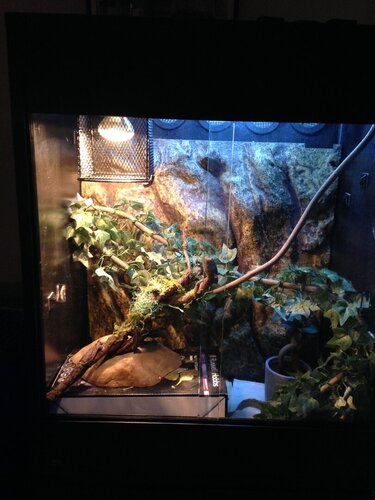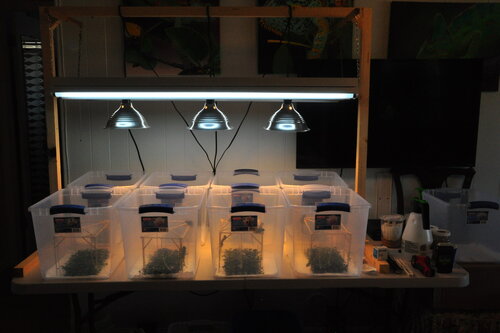starter
Member
So, after 7 months waiting, I have spent my first day with my very first chameleon baby! It is my first attempt breeding Yemen Veiled Chameleons and, all together, I have more than 200 eggs in the incubators and my female's belly is big and round again...
My first baby will be joined by three more tomorrow, and about five more the day after - those are already in the process of hatching and I leave them in the incubator until the next morning and only take them out once they look strong and are walking around. Now the first baby who hatched yesterday and moved to his new home this morning is getting ready for his first night (it is after 5 pm here in the UK) - and keeps digging in the sand at the bottom of the vivarium. That's why I wonder whether newborn babies actually want to or need to sleep underground, which would be a logical conclusion, as in nature they are born underground. The current bedding is a mix of sand, shredded grains (meant as food for the feeder animals) and tree bark (to hold the moisture up), but it is not suitable for digging tunnels. But the baby keeps trying and is digging with great dedication. Do I need to give him some soil or alike where he can build a tunnel?
Second question: I have given him a few tiny hatchling locusts and crickets, but haven't seen him eating yet. I also have flightless fruit flies and small calciworms ready. Do the cham babies need any help with starting to eat? I will appreciate some advice!
I have added pictures of the digging baby and of my setup.
![IMG_1900[1].JPG IMG_1900[1].JPG](data:image/svg+xml;charset=utf-8,%3Csvg xmlns%3D'http%3A%2F%2Fwww.w3.org%2F2000%2Fsvg' width='1440' height='1080' viewBox%3D'0 0 1440 1080'%2F%3E)
![IMG_1899[1].JPG IMG_1899[1].JPG](data:image/svg+xml;charset=utf-8,%3Csvg xmlns%3D'http%3A%2F%2Fwww.w3.org%2F2000%2Fsvg' width='1440' height='1080' viewBox%3D'0 0 1440 1080'%2F%3E)
My first baby will be joined by three more tomorrow, and about five more the day after - those are already in the process of hatching and I leave them in the incubator until the next morning and only take them out once they look strong and are walking around. Now the first baby who hatched yesterday and moved to his new home this morning is getting ready for his first night (it is after 5 pm here in the UK) - and keeps digging in the sand at the bottom of the vivarium. That's why I wonder whether newborn babies actually want to or need to sleep underground, which would be a logical conclusion, as in nature they are born underground. The current bedding is a mix of sand, shredded grains (meant as food for the feeder animals) and tree bark (to hold the moisture up), but it is not suitable for digging tunnels. But the baby keeps trying and is digging with great dedication. Do I need to give him some soil or alike where he can build a tunnel?
Second question: I have given him a few tiny hatchling locusts and crickets, but haven't seen him eating yet. I also have flightless fruit flies and small calciworms ready. Do the cham babies need any help with starting to eat? I will appreciate some advice!
I have added pictures of the digging baby and of my setup.




